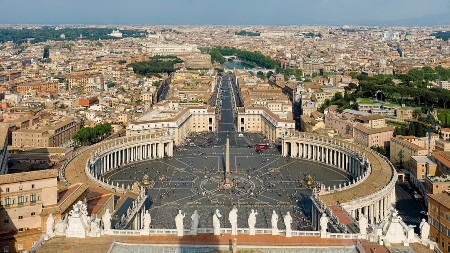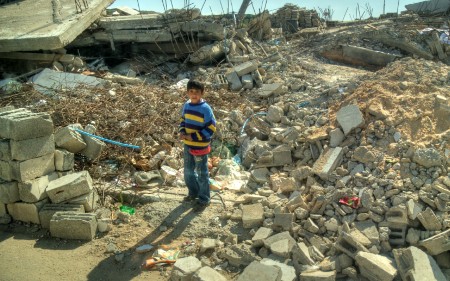 Dear readers, Catholic Online was de-platformed by Shopify for our pro-life beliefs. They shut down our Catholic Online, Catholic Online School, Prayer Candles, and Catholic Online Learning Resources—essential faith tools serving over 1.4 million students and millions of families worldwide. Our founders, now in their 70's, just gave their entire life savings to protect this mission. But fewer than 2% of readers donate. If everyone gave just $5, the cost of a coffee, we could rebuild stronger and keep Catholic education free for all. Stand with us in faith. Thank you. Help Now >
Dear readers, Catholic Online was de-platformed by Shopify for our pro-life beliefs. They shut down our Catholic Online, Catholic Online School, Prayer Candles, and Catholic Online Learning Resources—essential faith tools serving over 1.4 million students and millions of families worldwide. Our founders, now in their 70's, just gave their entire life savings to protect this mission. But fewer than 2% of readers donate. If everyone gave just $5, the cost of a coffee, we could rebuild stronger and keep Catholic education free for all. Stand with us in faith. Thank you. Help Now >
The Economic Crisis and the Uprooting of Poverty
FREE Catholic Classes
Pope Benedict called for an 'effective response to the economic crises afflicting several regions of the planet...and to put into effect a concerted international plan of action aimed at freeing the world from extreme poverty.' I support that call.
Highlights
ROMA (Chiesa) - Sandro Magister presented the following article by British prime Minister Gordon brown which appeared in L'Observatoro Romano:
A global challenge. The economic crisis and the uprooting of poverty
From Rio to Rome and from Lagos to London we are facing one of the greatest economic challenges of our generation. In what is likely to be described by historians as the first truly global economic crisis, growth forecasts have been revised to close to zero for 2009, trade and capital flows are falling and job losses are widespread.
The financial and economic crisis threatens the jobs and prospects of families in every country and on every continent. Across Europe thousands of people are suddenly without work and increasingly worried about their future. But these are global trends, with impacts also on the poorest in Africa, Asia, and elsewhere. In the poorest countries, this economic crisis will mean that millions more go hungry and that education and health services will be cut back.
I know the Catholic Church and His Holiness share these concerns. Poorer countries are finding that every source of their financing - export and commodity demand; trade and project finance; aid flows; remittances; capital flows - has been affected by the unprecedented scale and coverage of the crisis.
In Britain we are using all of the levers at our disposal to ensure that the recession is as short and as shallow as possible. But as a global recession, we need a global response if our measures are to succeed. On April 2nd, leaders from the world's biggest and richest countries - representing over two thirds of the global population and 90% of the global economy - will meet in London to discuss the response.
It is critical that we succeed. If we do not, the recession will be deeper and longer than it should have been and it will affect more people. In the developing world unless we deal with the effects of the crisis, the World Bank estimates that between now and 2015 an extra 2.8 million children could die before their fifth birthday. That is the equivalent of the entire population of Rome dying over the next five years.
So the moral case for action could not be stronger. But it is no longer just a moral case. What this crisis has shown us is that we cannot allow problems to fester in one country: they will have a knock-on impact on all of us. It is therefore our collective responsibility to ensure that the needs of the poorest countries will not be an afterthought, tagged on due to moral obligation or guilt. It is time that we see developing countries as being part of the global solutions that we need. And it is vital that those global solutions cater for developing countries.
Our global response must therefore first of all include more, faster and better financing from the International Financial Institutions, to help protect investments in health and education and stimulate economies. A global stimulus will only work if it is truly global. For too long it had only been rich countries that have been able to inject capital into their economies in times of trouble. This time it must be different.
I have already started conversations with the IMF, World Bank and others to develop proposals which if accepted by the G20 could inject billions of dollars into developing countries' economies. Second, we need reforms to the International Financing Institutions to give more voice to the developing world, resulting in more effective, legitimate and responsive institutions. And third, we need to find ways to mobilise resources to protect the very poorest, such as a "Global Vulnerability Fund" that can be specifically targeted at the poorest and most vulnerable.
On climate change too we need to make sure that the crisis in the economy does not stop us addressing the climate crisis. We must seize the moment to ensure that we invest in green industries that set us up for the future instead of imperilling future generations.
We must also look at kick starting global trade. We know that a retreat to protectionism will make us all poorer - but this is also a moment of opportunity. If we can use the new political momentum to conclude the Doha Trade Deal, it is estimated that it could benefit the global economy by $150 billion. The Holy See has strongly argued for a pro-poor trade deal and I hope that voice will now at last be heard.
As a politician I know that when religions mobilise their resources their impact is keenly felt. Most recently, we saw the prominent role of religions as part of the broadest coalition of actors coming together in support of the Millennium Development Goals at the High Level Event in New York in September.
Religious values, such as justice and solidarity - values that say that poor children as well as rich children should have access to vaccines and medicine - led the UK and the Holy See to support together the International Finance Facility for Immunisation and the Advanced Market Commitments. The Pope's purchase of the first Bond for immunisation gave tangible expression to this shared commitment to international development. That Bond raised over $1.6 billion and will immunise 500 million children between 2006 and 2015 - leading to 5 million children being saved.
On 18 June 2008, Pope Benedict called for an 'effective response to the economic crises afflicting several regions of the planet...and to put into effect a concerted international plan of action aimed at freeing the world from extreme poverty.' I support that call. The London Summit in April must see us rise to the challenge.
---
Chiesa is a wonderful source on all things Catholic in Europe. It is skillfully edited by Sandro Magister. SANDRO MAGISTER was born on the feast of the Guardian Angels in 1943, in the town of Busto Arsizio in the archdiocese of Milan. The following day he was baptized into the Catholic Church. His wife�s name is Anna, and he has two daughters, Sara and Marta. He lives in Rome.
Join the Movement
When you sign up below, you don't just join an email list - you're joining an entire movement for Free world class Catholic education.

-

-
Mysteries of the Rosary
-
St. Faustina Kowalska
-
Litany of the Blessed Virgin Mary
-
Saint of the Day for Wednesday, Oct 4th, 2023
-
Popular Saints
-
St. Francis of Assisi
-
Bible
-
Female / Women Saints
-
7 Morning Prayers you need to get your day started with God
-
Litany of the Blessed Virgin Mary
Daily Catholic
 Daily Readings for Thursday, January 16, 2025
Daily Readings for Thursday, January 16, 2025 St. Fursey: Saint of the Day for Thursday, January 16, 2025
St. Fursey: Saint of the Day for Thursday, January 16, 2025 Prayer for a Blessing on the New Year: Prayer of the Day for Tuesday, December 31, 2024
Prayer for a Blessing on the New Year: Prayer of the Day for Tuesday, December 31, 2024- Daily Readings for Wednesday, January 15, 2025
- St. Paul the Hermit: Saint of the Day for Wednesday, January 15, 2025
- St. Theresa of the Child Jesus: Prayer of the Day for Monday, December 30, 2024
![]()
Copyright 2024 Catholic Online. All materials contained on this site, whether written, audible or visual are the exclusive property of Catholic Online and are protected under U.S. and International copyright laws, © Copyright 2024 Catholic Online. Any unauthorized use, without prior written consent of Catholic Online is strictly forbidden and prohibited.
Catholic Online is a Project of Your Catholic Voice Foundation, a Not-for-Profit Corporation. Your Catholic Voice Foundation has been granted a recognition of tax exemption under Section 501(c)(3) of the Internal Revenue Code. Federal Tax Identification Number: 81-0596847. Your gift is tax-deductible as allowed by law.







 Daily Readings for Thursday, January 16, 2025
Daily Readings for Thursday, January 16, 2025 St. Fursey: Saint of the Day for Thursday, January 16, 2025
St. Fursey: Saint of the Day for Thursday, January 16, 2025 Prayer for a Blessing on the New Year: Prayer of the Day for Tuesday, December 31, 2024
Prayer for a Blessing on the New Year: Prayer of the Day for Tuesday, December 31, 2024

